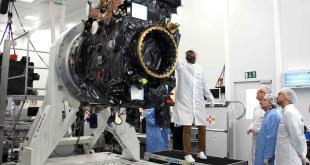
Ibadan, 31 January 2023. – Airbus has disclosed plans to recruit more than 13,000 people globally in 2023 to support its commercial aircraft ramp-up and meet challenges in defense, space, and helicopters. Furthermore, around 7,000 of these recruitments will be new posts across the Company. Accordingly, the new hires will be instrumental in supporting its industrial ramp-up and Airbus’ ambitious decarbonization roadmap and preparing the future of aviation.
“In 2022, we welcomed more than 13,000 new employees within Team Airbus around the world, in a complex environment which tested our resilience and attractiveness as a global employer,” said Thierry Baril, Chief Human Resources & Workplace Officer of Airbus. “Following the success of our recruitment last year, we will hire over 13,000 employees again in 2023. We call on talented individuals from all over the world to join us in our journey to make sustainable aerospace a reality and to help us build a better, more diverse, and inclusive workplace for all our employees,” He concluded.
This new recruitment drive will be global and will emphasize technical and manufacturing profiles and the acquisition of new skills supporting the Company’s long-term vision in areas such as new energies, cyber and digital. More than 9,000 of these posts will be in Europe and the rest throughout our global network. Furthermore, a third of the total recruitment will be for recent graduates.
Airbus currently employs more than 130,000 people across its businesses worldwide. The Company also recently won the Top Employers certification in Europe, North America, and Asia Pacific by the Top Employers Institute.





